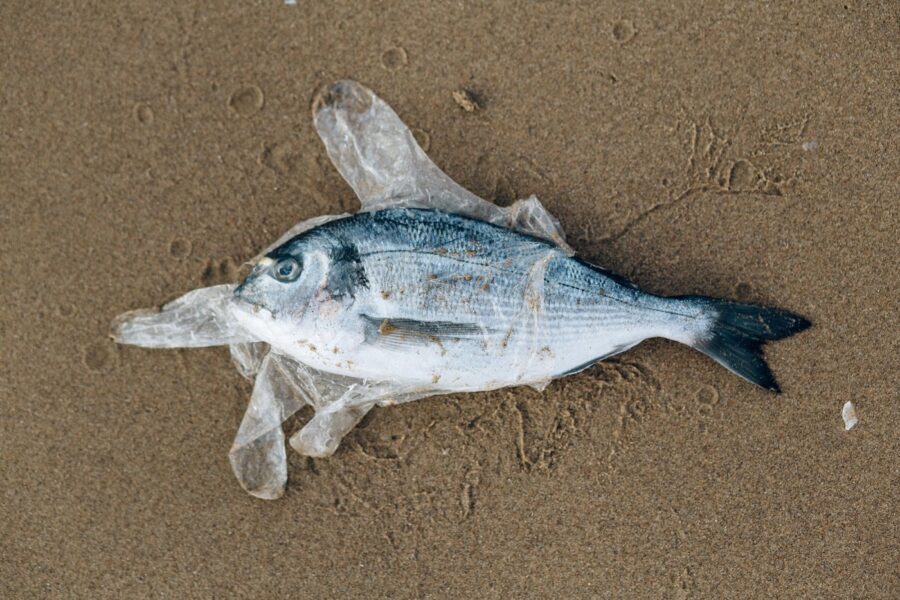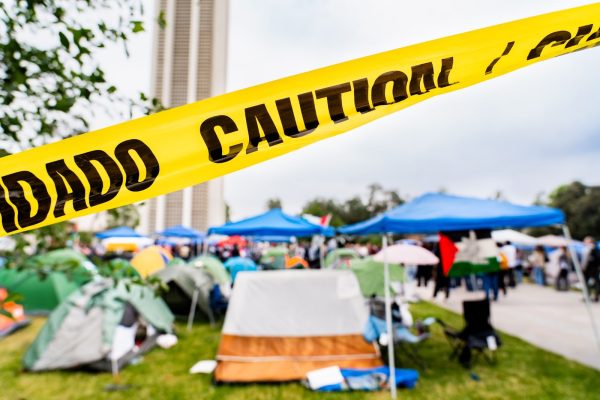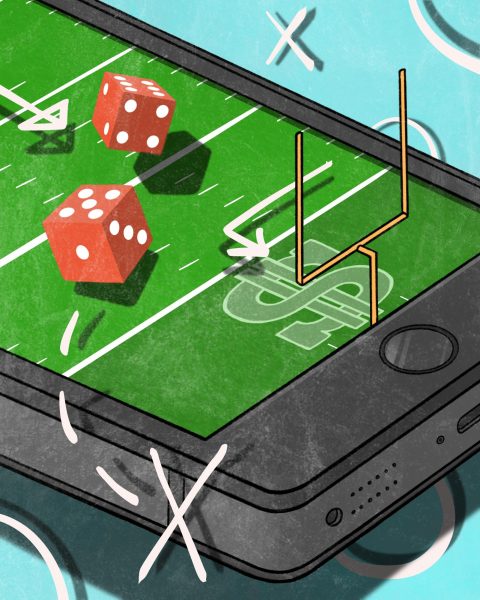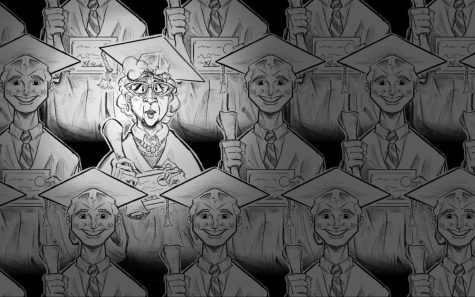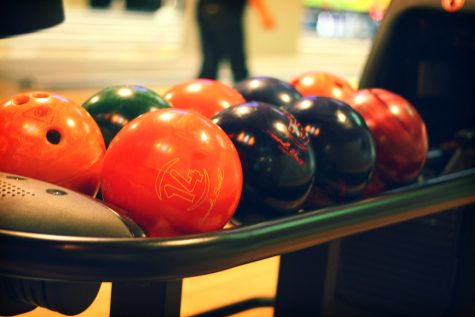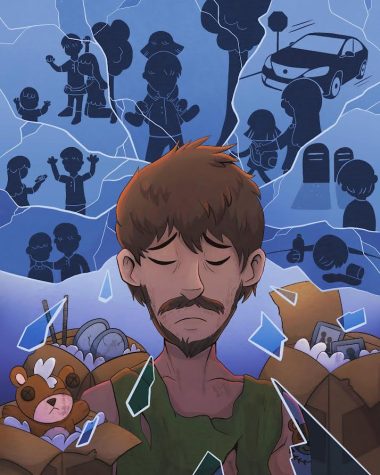Detrimental Effects of Single-Use Plastics During the Pandemic
Something must be done to save our marine life before it’s too late.
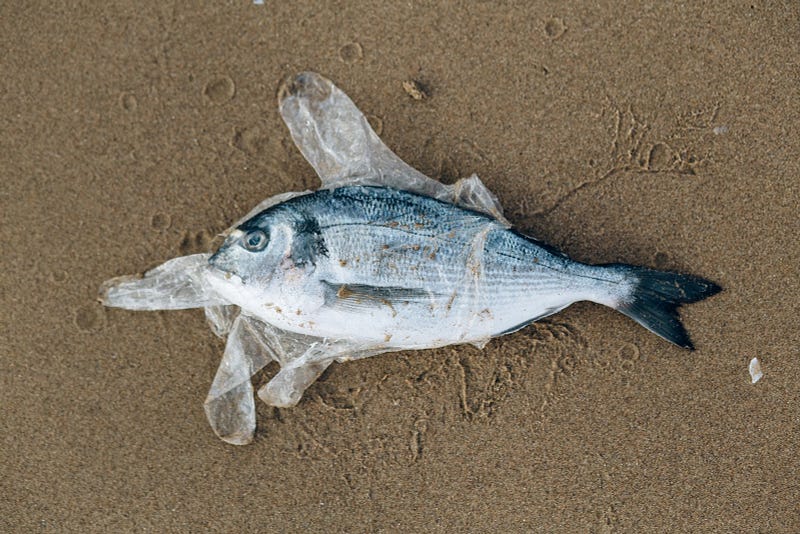
Detrimental Effects Of Single-Use Plastics During The Pandemic
Something must be done to save our marine life before it’s too late.
Imagine swimming around in the middle of the Caribbean Sea, when suddenly your whole face and body become entangled in a huge plastic bag. You can’t take it off because you have no hands, and you feel the air slowly closing in until you can’t breathe, but there is no one to help you. You agonize and wait for your imminent death as you slowly asphyxiate to death.
This is an example of what the hundreds of thousands of marine animals go through every day as they get jumbled in plastic and end up harmed or killed. They eat plastic that is thrown away by us. Sea turtles get stuck in plastic bags and suffocate, whales eat so many plastic bags that their stomach becomes ruptured, and seabirds get caught in plastic lines and rope that sever their feet completely.
The Plastic Problem
Worse yet, the pandemic has contributed to more pollution from a huge increase in plastic waste than ever before. The International Union for Conservation of Nature (IUCN) said, “at least eight million tons of plastic end up in our oceans every year, and make up 80% of all marine debris from surface waters to deep-sea sediments.”
With the rise in popularity of food delivery platforms like UberEats, and the conversion of dine-in to take out in restaurants, people are generating exorbitant amounts of trash from single-use plastic utensils, straws, boxes, and to-go containers.
Furthermore, with the growth of people staying home and online shopping during lockdown, the use of plastics such as air pillows and bubble wrap is skyrocketing. While consumers are benefiting from their products being safely handled and shipped to their homes, the environment suffers immensely from these items.
The pandemic’s effects of excess plastic waste in hospitals, consisting of surgical masks, latex gloves, and medical equipment made of plastic is widely alarming. A research study by Chemical Engineering Journal said, “an estimated monthly use of 129 billion face masks and 65 billion gloves would be necessary to protect citizens worldwide.”
Marine animals and land animals mistake these masks and latex gloves for food and end up ingesting them. The absorption of these plastics lead to gastrointestinal obstruction and severe harm, that also lead thousands of animals to extinction.
Dr. Bonnie Monteleone, Executive Director and Director of Science of the Plastic Ocean Project, addressed the plastic problem during the pandemic and explains how much animals are suffering from pollution.
She explained that there are seven types of plastic that are labeled on the bottom of plastic, and vary in buoyancy in the ocean. She said, “some of them float, some of them will sink to the bottom, and some will not sink to the bottom. She added, “#3s will sink to the bottom. #4s will hang in the column- those are gonna be the plastic bags, films, and wrappers.”
“It’s impacting all of the marine life, from the ones that feed in the bottom, the ones that feed in the middle, and the ones on top,” Monteleone said.
This means that all types of marine animals in the ocean are eating plastic or being injured by them. Even tiny microscopic organisms such as plankton are eating them.
To make matters worse, Monteleone explained the toll plastic has on sea animals.
“Plastic is a serious problem for sea turtles and seabirds- we lose one million a year through entanglement or ingestion.” She added that an interesting study that was done in Florida involved dissecting 93 dead loggerhead sea turtle hatchlings, or newborns. Of the 93 dissected, all 100 percent were found to have plastic inside them already.
During the pandemic, cleanups for the Plastic Ocean Project have also been challenging. There are issues of sanitation such as picking up plastic masks and gloves from the ground near oceans and streets. Monteleone has also noticed that there are around 50 single-use disposable masks to one reusable mask found. It seems that many people during the pandemic want to keep safe and use non-reusable ones, but the amount of waste collected from single-use masks and gloves is frightening.
Why should it matter to me?
The plastic problem is a problem not only to the environment but directly for humans as well. Plastic does not decompose or disappear, because it is not organic. Plastic breaks up into smaller particles, and floats around in our oceans, streets, and even in our food. That means that we are eating harmful plastic made up of chemicals that cause many significant health problems. Plastic is not only hurting the animals, marine life, and our Mother Earth, but it is hurting both you and me.
How can we fix this problem during the pandemic?
The pandemic is a serious global problem, and plastic has been an enormous help for patients and households during the crisis. Medical equipment, such as ventilators, anesthetics, syringes are all made up of plastic and have been helpful in saving hundreds of thousands of lives. Cleaning supplies are also made of plastic, and have been helpful in combating the virus.
On the other hand, the advantages of plastic during the COVID-19 crisis have caused many significant disadvantages, such as the irreparable damages to the environment.
Even though there are irreversible effects caused by pollution of plastic waste, there are still steps that we can take to decrease the amount of polluted waste in our environment. There have also been steps that many organizations and the government have taken to address the plastic issue over more recent years.
Director of Communications of Plastic Pollution Coalition, Emily Frisco, said, “Plastic Pollution Coalition remains unswerving in our work to reduce single-use plastics — specifically for non-medical use that may become a vehicle of virus transmission and cause worsening global plastic pollution.”
Inclusively, Monteleone said that the plastic bag ban in 2016 in California shows that the people wanted to get rid of single-use plastic bags, since the vote passed by popular vote. The plastic straw issue is being addressed with steps such as people using metal straws, wooden straws, and having to ask for straws at restaurants. UberEats now has the option on the app to have to ask for utensils when ordering food.
The major steps we need to take as a whole involves raising awareness through educating people about single-use plastics and the horrible effect on the environment. We need to administer more laws of changing the economy’s usage and handling of plastics and waste.
Using refillable water bottles, paper bags, reusable and repurposed bags, and not using straws can help save the world from more damage.
“Businesses need to be created in order for people to take plastics and turn them into plastics we can reuse,” Monteleone said.
One of her organization’s projects include turning plastic into fuel, converting hospital equipment such as syringe plastics into energy. She is focusing on how to create a circular economy out of their energy.
Lastly, more people can join organizations such as the Ocean Plastic Project and Plastic Pollution Coalition to help with ocean and street waste cleanups. People can raise awareness and contribute to a brighter future for our environment. With a new administration arriving early next year, there is a need to set out a plan to change the ways we use plastic.
“We are going to have to pressure this new administration,” Monteleone said. “The need for a circular economy on our waste has to be implemented.”
To help Monteleone and her team, make sure to check out Ocean Plastic Project, and see the many ways you can help keep the environment a safe and healthy place for animals and humans to live in.

